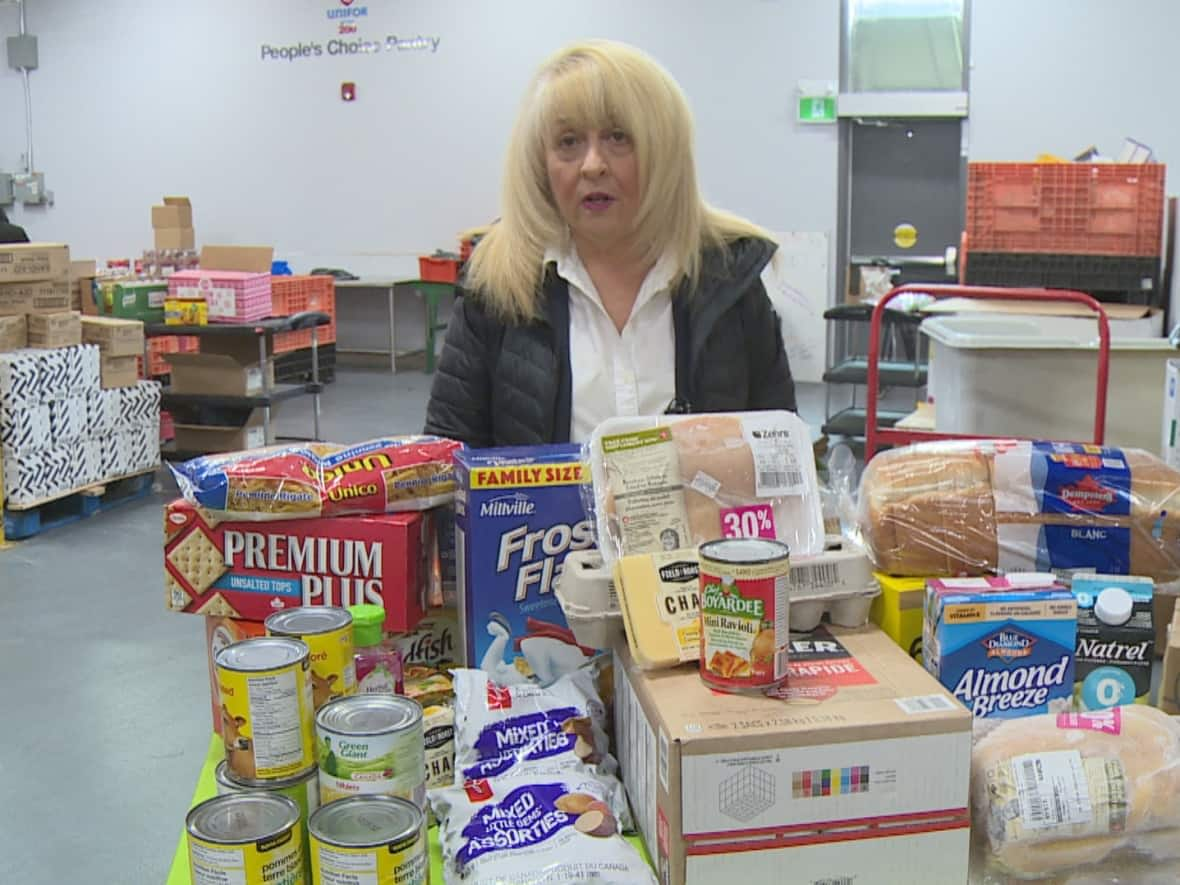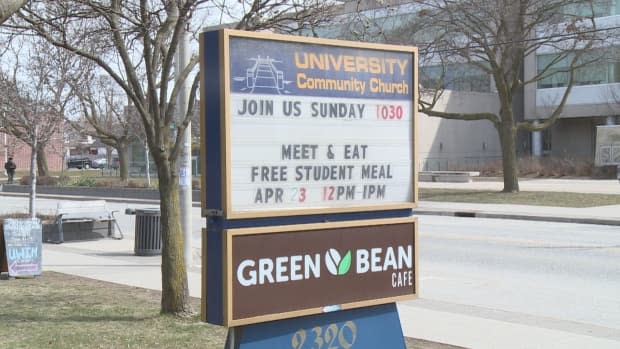For struggling families and seniors in Windsor, new grocery rebate just a 'drop in the bucket'

The federal budget released Tuesday includes a one-time payment the government is calling a grocery rebate, but some in Windsor, Ont., say the money won't go very far in helping lower-income people with the rising cost of food.
A single person with no children could get a one-time payment of up to $234, while a couple with two children could receive up to $467 and a senior citizen about $225.
The timing of the payment will depend on how quickly the government can get the legislation to implement the budget passed.
The move comes as the cost of food continues to rise year over year despite the fact that overall inflation has been easing for months now.
June Muir, president of the Windsor-Essex Food Bank Association, said the amount of money isn't going to make much of an impact.
"I'm sure that families will be happy that they're going to receive something one time, but for us it's disappointing," she said.
"People are still going rely on a food bank, so it's very disappointing. And I was expecting more and hoping for more for people because food inflation is higher than inflation."
Muir said government needs to be thinking bigger than the one-time payment.
I just don't understand why the food prices keep rising. - Karen Kirby
"We need to look at the root causes. We need policy change. And you know, food banks are being relied on to the point where we've never seen it like this before."
Muir said last year, 8,000 new clients came to the food bank for help, and when money is tight, people pay their rent and utilities bills first, which puts even more pressure on food banks.
"With inflation the way it is today, that's the last thing they're buying is food. So we were hoping for more," she said.
"It's disappointing and I can see that our numbers are not going to decrease, that we're just going to get busier and people are going to rely on us more and we hope we can keep up."
Policy changes, more funding
Muir said social support rates — like disability payments — need to be raised to help people fight food inflation.
She also noted that affordable housing and lower rent would keep more money in people's pockets to spend on food.
We fight every day, you know, trying to find a buck. - Barb Meloche
One thing that has changed at the food bank, Muir said, is that more people using the service are employed but still can't make ends meet.
"They're just earning maybe minimum wage or they're not making enough money," she said.
"They have lots of children. So we are helping many, many families, individual seniors, youth, kids that are going to school."
She also said that because of the high prices, many people who used to donate to the food bank can't afford to anymore.
"It's been a struggle for many, many people and we only see it getting worse, not better.

At the University Community Church, next to the University of Windsor campus, Rev. Shalini Sankarlal, the church's pastor, said that amount of money won't do much.
"It definitely isn't enough," she said.
"[Tuesday] alone we had six people knock on our door for food cards that we give away in addition to the food cupboard that we have. So while it is something, it will not be sufficient."
Alison Brown, an admin assistant at the church, agreed.
"It's not enough. That's my first initial reaction for sure, because I've had students tell me this month I have to decide if I'm going to buy some bread or I'm going to buy some milk," she said.
"The need is much greater than those amounts."

Brown said trying to get food prices lower, in addition to financial assistance, would help.
Sankarlal said that, like Muir, she thinks there needs to be a more holistic approach to solving the problem.
"It seems like a Band-Aid rather than a solution," she said.
"What are the housing opportunities that [students] have? How do you control the rent that they're paying? You have to look at the food as well and how can we help them there."
'Drop in the bucket'
CBC spoke with several people in Windsor about the proposed grocery rebate and while the money is welcome, many say it isn't enough.
"It's just a drop in the bucket," said Joan Hames, a senior on a "very limited income."
"But like I said, I'm grateful for anything that I get because my income is so small."
"That would be fantastic," said Barb Meloche. "We're seniors ourselves, and we fight every day, you know, trying to find a buck. Do you pay your rent? Do you get your groceries? So that would be fantastic."
"I just don't understand why the food prices keep rising," said Karen Kirby.
"It just seems to be ridiculous. It's never enough."
All the people CBC spoke to said the program should be a two-time payment, rather than just one.
And some said they thought government should be doing more to get prices down — like dropping some taxes people are paying on their food.


